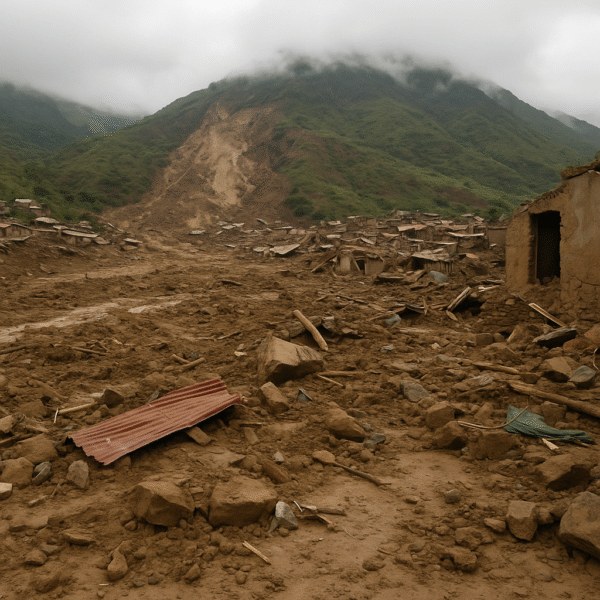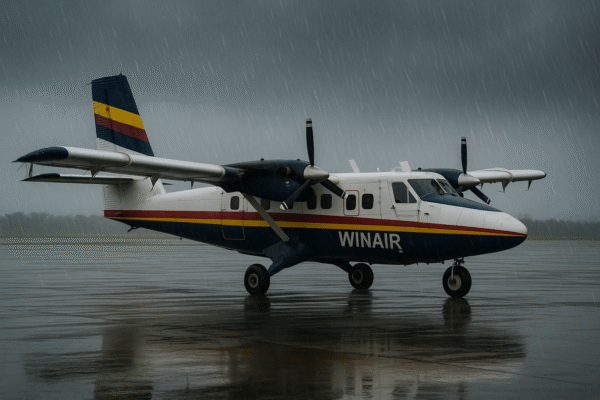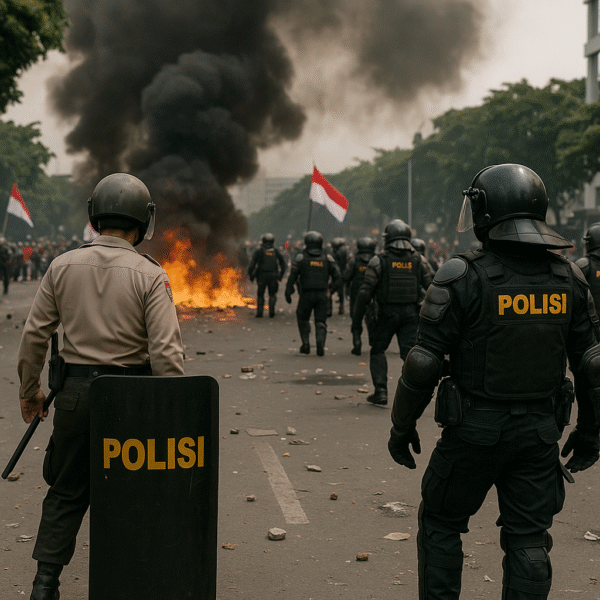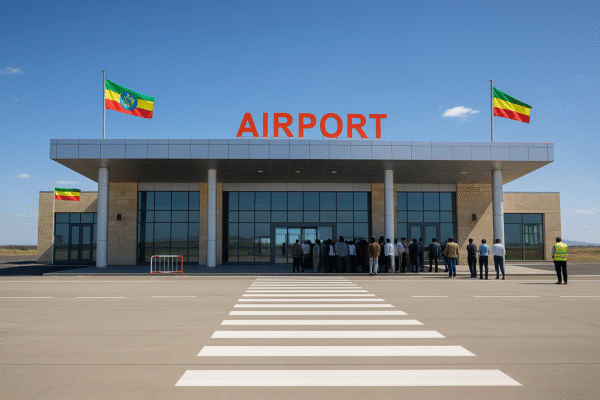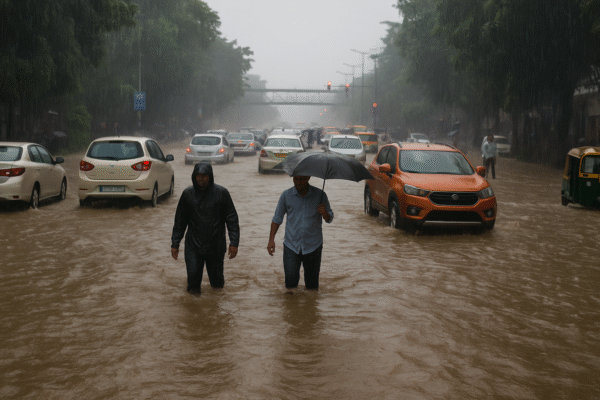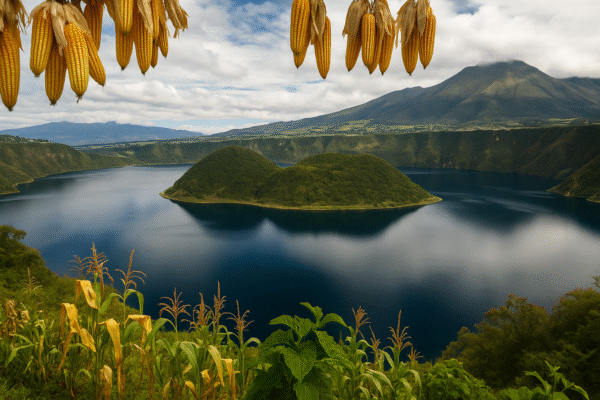The serene beauty of Sudan’s Jebel Marra, known for its sweeping volcanic landscapes and rich cultural history, was shattered on August 31 when a massive landslide swept through the remote mountain village of Tarasin. Triggered by days of relentless rainfall, the landslide buried homes, farmlands, and infrastructure under a torrent of mud and debris, leaving more than 1,000 people dead and only one known survivor.
This disaster marks one of the deadliest natural calamities in the region’s recent history, casting a long shadow over local communities that have long battled environmental hardships and political instability.
The Landslide and Its Impact
The Jebel Marra region, located in western Sudan, is famed for its unique volcanic terrain, fertile valleys, and cool climate that make it a hidden gem for adventurers and nature enthusiasts. But in late August, prolonged and heavy rainfall loosened unstable slopes, triggering a catastrophic landslide that obliterated the village of Tarasin in a matter of minutes.
The force of the landslide was so severe that it swept away entire clusters of homes, farmlands, and roads. Families were buried beneath the rubble, and livestock — a vital source of livelihood — was lost, further compounding the economic devastation.
For the few who escaped the disaster, survival has been nothing short of miraculous. The sole confirmed survivor has become a poignant symbol of hope amid the staggering loss, but the emotional and physical scars for the community will last for years.
A Humanitarian and Environmental Crisis
The landslide has not only devastated Tarasin but also strained an already fragile humanitarian system in the region. Western Sudan has long faced challenges tied to conflict, poverty, and underdevelopment. Basic services such as healthcare, clean water, and emergency infrastructure are limited, making both rescue and recovery operations extremely difficult.
The disaster occurred during one of the region’s most intense rainy seasons on record, with flooding and landslides displacing thousands across western Sudan and neighboring countries. Experts point to increasingly unpredictable weather patterns and climate shifts as key drivers behind such catastrophic events, warning that future risks are likely to increase without significant investment in resilience and mitigation.
Tourism Interrupted: A Region’s Hidden Beauty Now in Limbo
Before the tragedy, Jebel Marra was slowly emerging as a niche destination for eco-tourism. Its volcanic craters, cascading waterfalls, and rich biodiversity had started to attract adventurous travelers seeking untouched landscapes and authentic cultural encounters.
Now, the very terrain that made the area a natural wonder has become a source of fear. Travel plans have been halted, and questions are being raised about the safety and future of mountain tourism in Sudan. Rebuilding trust will require significant upgrades in safety protocols, disaster preparedness, and early-warning systems to ensure that residents and visitors alike can be protected from future threats.
The Road to Recovery
Recovery in the aftermath of the Jebel Marra landslide will be a long and complex process. Immediate priorities include locating and assisting any additional survivors, providing food, clean water, and medical aid, and ensuring temporary shelter for displaced families. Humanitarian organizations are working with local communities to coordinate relief efforts, but access remains a major challenge due to damaged roads and difficult terrain.
In the long term, rebuilding Tarasin and nearby communities will require comprehensive planning. This includes reinforcing critical infrastructure such as housing, roads, and communication systems, as well as implementing sustainable land management practices to reduce the risk of future landslides.
Investments in early-warning systems and community training programs are also essential to strengthen resilience. By empowering local residents with knowledge and resources, communities can better prepare for natural hazards and respond more effectively when disasters strike.
A Wake-Up Call for Climate Resilience
The tragedy in Jebel Marra serves as a sobering reminder of the urgent need for climate adaptation strategies. The increasing frequency and intensity of extreme weather events in the region highlight vulnerabilities that cannot be ignored. Experts stress the importance of integrating environmental monitoring and disaster risk management into development plans, not only for local safety but also to protect the potential of mountain tourism as a source of sustainable income.
Honoring the Victims, Supporting the Survivors
As the global community reacts to the scale of the disaster, there is an outpouring of sympathy and support for those affected. For the families who have lost loved ones, the path to healing will be long, but community solidarity and international assistance offer a foundation for recovery.
The story of the sole survivor offers a glimmer of resilience and hope. Their survival serves as a reminder of human strength even in the face of overwhelming odds.
Looking Ahead
The Jebel Marra landslide will be remembered not only as a natural disaster but also as a pivotal moment in Sudan’s modern history. As rescue efforts transition to long-term recovery, attention must turn toward building a safer and more sustainable future for the region.
By investing in climate resilience, strengthening infrastructure, and fostering responsible tourism practices, Sudan has the opportunity to transform this tragedy into a lesson in preparedness and renewal. For now, however, the focus remains on healing, rebuilding, and honoring the lives lost in the Tarasin tragedy.
For more travel news like this, keep reading Global Travel Wire





